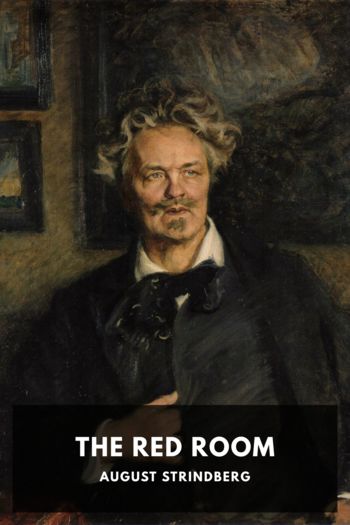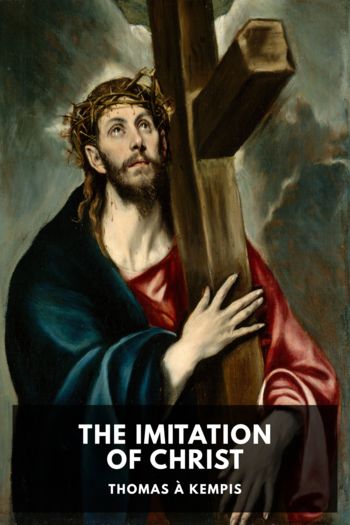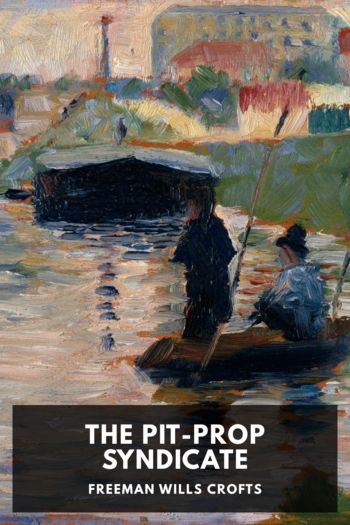The Red Room by August Strindberg (ready player one ebook TXT) 📕

- Author: August Strindberg
Book online «The Red Room by August Strindberg (ready player one ebook TXT) 📕». Author August Strindberg
The proceedings continued. The peasant Sven Svensson asked for permission to say a few words on the Poor Law. With one accord all the reporters arose, yawned and stretched themselves.
“We’ll go to lunch now,” explained the Red Cap. “We have an hour and ten minutes.”
But Sven Svensson was speaking.
The delegates began to get up from their places; two or three of them went out. The president spoke to some of the good members and by doing so expressed in the name of the government his disapproval of all Sven Svensson might be going to say. Two older members pointed him out to a newcomer as if he were a strange beast; they watched him for a few moments, found him ridiculous and turned their backs on him.
The Red Cap was under the impression that politeness required him to explain that the speaker was the “scourge” of the Chamber. He was neither hot nor cold, could be used by no party, be won for no interests, but he spoke—spoke. What he spoke about no one could tell, for no paper reported him, and nobody took the trouble to look up the records; but the clerks at the tables had sworn that if they ever came into power, they would amend the laws for his sake.
Falk, however, who had a certain weakness for all those who were overlooked remained behind and heard what he had not heard for many a day: a man of honour, who lived an irreproachable life, espousing the cause of the oppressed and the downtrodden while nobody listened to him.
Struve, at the sight of the peasant, had taken his own departure, and had gone to a restaurant; he was quickly followed by all the reporters and half the deputies.
After luncheon they returned and sat down on the narrow stairs; for a little longer they heard Sven Svensson speaking, or rather, saw him speaking, for now the conversation had become so lively that not a single word of the speech could be understood.
But the speaker was bound to come to an end; nobody had any objections to make; his speech had no result whatever; it was exactly as if it had never been made.
The chief clerk, who during this interval had had time to go to his offices, look at the official papers, and poke his fires, was again in his place, reading: “72. Memorial of the Royal Commission on Per Ilsson’s motion to grant ten thousand crowns for the restoration of the old sculptures in the church of Träskola.”
The dog’s head on the rail of the strangers’ gallery assumed a threatening aspect; he looked as if he were going to fight for his bone.
“Do you know the freak up there in the gallery?” asked the Red Cap.
“Olle Montanus, yes, I know him.”
“Do you know that he and the church of Träskola are countrymen? He’s a shrewd fellow! Look at the expression on his face now that Träskola’s turn has come.”
Per Ilsson was speaking.
Struve contemptuously turned his back on the speaker and cut himself a piece of tobacco. But Falk and the Red Cap trimmed their pencils for action.
“You take the flourishes, I’ll take the facts,” said the Red Cap.
After the lapse of a quarter of an hour Falk’s paper was covered with the following notes.
Native Culture. Social Interests. Charge of materialism. Accord. Fichte material, Native Culture not mater. Ergo charge rejected. Venerable temple. In the radiance morning sun pointing heavenwards. From heath. times Philos. never dreamt. Sacred rights. Nation. Sacred Int. Native Cult. Literature. Academy. History. Antiquity.
The speech which had repeatedly called forth universal amusement especially at the exhumation of the deceased Fichte, provoked replies from the Metropolitan Bench and the bench of Upsala.
The delegate on the Metropolitan bench said that although he knew neither the church of Träskola nor Fichte and doubted whether the old plaster-boys were worth ten thousand crowns, yet he thought himself justified in urging the Chamber to encourage this beautiful undertaking as it was the first time the majority had asked for money for a purpose other than the building of bridges, fences, national schools, etc.
The delegate on the bench of Upsala held—according to Struve’s notes—that the mover of the proposition was a priori right; that his premise, that native culture should be encouraged, was correct; that the conclusion that ten thousand crowns should be voted was binding; that the purpose, the aim, the tendency, was beautiful, praiseworthy, patriotic; but an error had certainly been committed. By whom? By the Mother country? The State? The church? No! By the proponent? The proponent was right according to common sense, and therefore the speaker—he begged the Chamber to pardon the repetition—could only praise the purpose, the aim, the tendency. The proposition had its warmest sympathies; he was calling on the Chamber in the name of the Mother country, in the name of art and civilization, to vote for it. But he himself felt bound to vote against it, because he was of the opinion that, conformable to the idea, it was erroneous, motiveless and figurative, as it subsumed the conception of the place under that of the State.
The head in the strangers’ gallery rolled its eyes and moved its lips convulsively while the motion was put to the vote; but when the proceeding was over and the proposition had been accepted, the head disappeared in the discontented and jostling audience.
Falk did not fail to understand the connection between Per Ilsson’s proposition and Olle’s presence and disappearance. Struve, who had become even more loud and conservative after lunch, talked unreservedly of many things. The Red Cap was calm and indifferent; he had ceased to be astonished at





Comments (0)